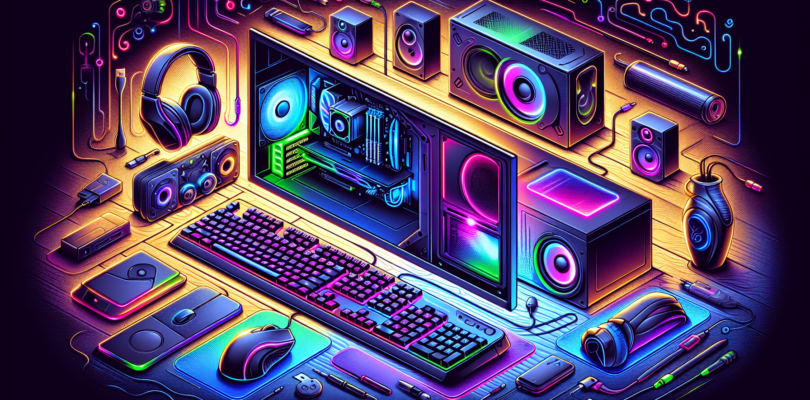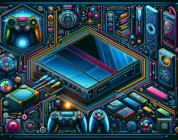Essentials of PC Gaming: A Beginner’s Guide
Welcome to the exciting world of PC gaming! Whether you’re making the switch from consoles or diving into gaming for the first time, this guide is designed to help you grasp the essentials. PC gaming is known for its versatility, superior graphics options, and a vast library of games. Let’s embark on this journey together to ensure you have the best start possible.
Understanding PC Gaming Hardware
The heart of your gaming setup is your hardware. Here’s what you need to know:
- Processor (CPU): The CPU is the brain of your PC. For gaming, consider a quad-core processor as a minimum, with higher core counts offering better performance for multitasking and more demanding games.
- Graphics Card (GPU): The GPU renders the graphics of your games. The better your GPU, the higher the graphics settings and frame rates you can enjoy in your games. Nvidia and AMD are the leading brands in this arena.
- Memory (RAM): RAM is crucial for allowing your games and other applications to run smoothly. 8GB is the bare minimum for gaming in today’s standards, but 16GB or more is recommended.
- Storage: SSDs (Solid State Drives) have faster load times compared to HDDs (Hard Disk Drives), making them a popular choice for gamers. Consider a combination of both to balance cost and performance.
- Power Supply Unit (PSU): A stable and sufficient PSU is essential to run your components. Make sure it has enough wattage to support your GPU and CPU.
- Case: Beyond aesthetics, your case plays a significant role in airflow and cooling, affecting your system’s longevity and performance.
Choosing the Right Peripherals
Your choice of peripherals can greatly enhance your gaming experience. Here are some essentials:
- Monitor: Look for monitors with low response times and high refresh rates to ensure smooth gameplay. Size, resolution, and panel type are also key factors.
- Keyboard and Mouse: Gaming keyboards and mice offer advantages like faster response times and customizable macros. Ergonomics also play an essential role in long gaming sessions.
- Headset: A good gaming headset delivers immersive audio and clear communication with teammates. Consider comfort, sound quality, and whether you prefer wired or wireless.
Software and Games
PC gaming is as much about the software as it is about the hardware. Make sure to:
- Install the right drivers: Keeping your GPU drivers up to date ensures the best performance and compatibility with the latest games.
- Choose a gaming platform: Platforms like Steam, Origin, and Epic Games Store offer vast libraries of games to purchase and play. GOG.com is a great choice for DRM-free classics.
- Consider game settings: Tweaking your game settings can optimize performance without significantly compromising on visual quality. Understanding settings like resolution, frame rate, and graphics presets can help you get the most out of your hardware.
Maintaining Your Gaming PC
Maintaining your PC ensures its longevity and optimal performance. Regularly:
- Clean your PC: Dust buildup can lead to overheating. Use compressed air to clean out dust from your case and components.
- Update your software: This includes your operating system, drivers, and games. Keeping everything up to date fixes bugs and improves security.
- Monitor temperatures: High temperatures can cause damage. Use software tools to keep an eye on your CPU and GPU temperatures, especially during long gaming sessions.
Embarking on your PC gaming journey is an exciting adventure filled with endless possibilities. Understanding the essentials of hardware, peripherals, software, and maintenance sets you up for success. Welcome to the vast, vibrant world of PC gaming—may your adventures be legendary!





